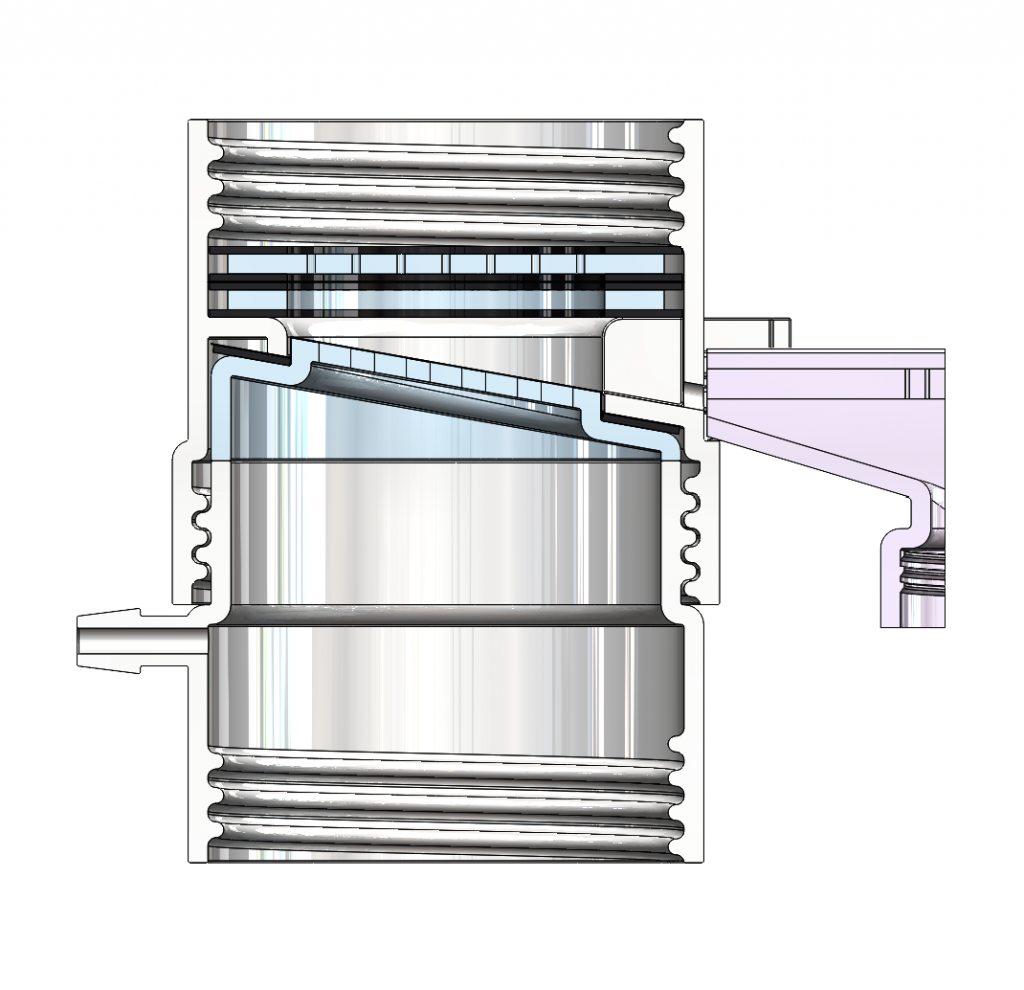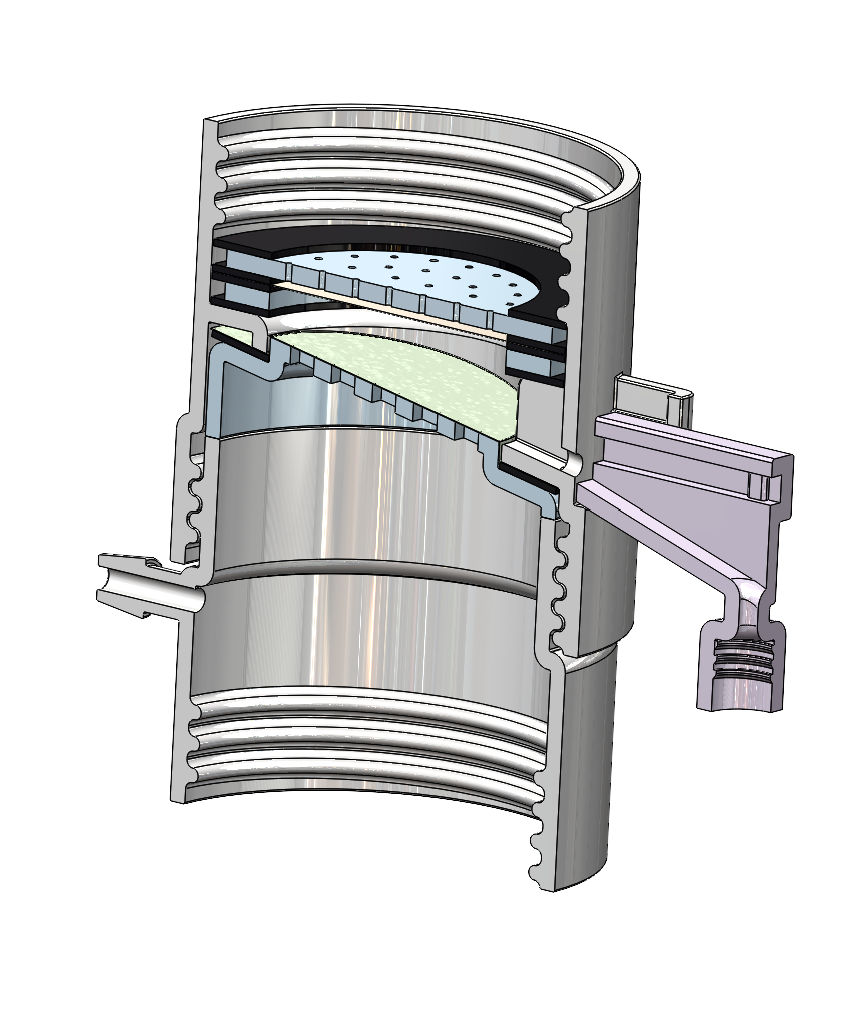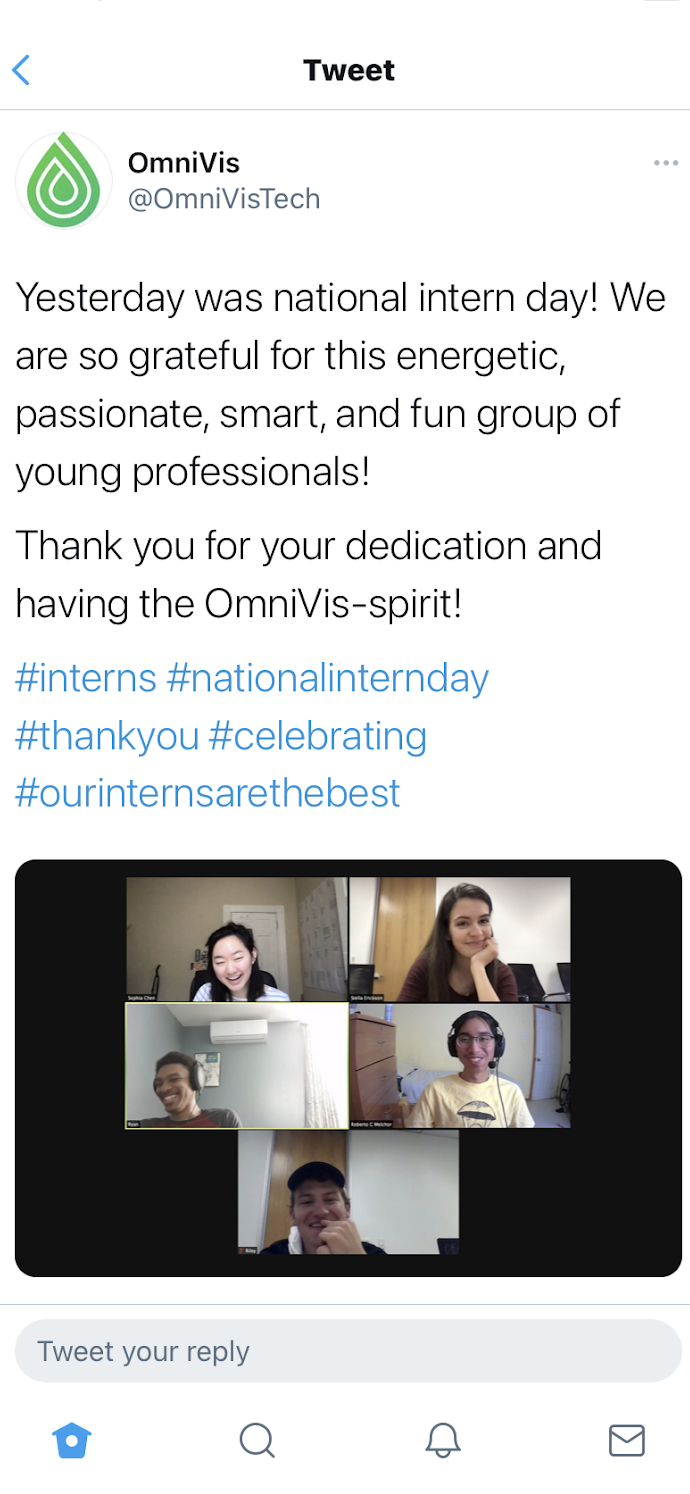Social Impact Internships: Sophia Chen (’23)
Hi! I’m Sophia, and I’m a rising Junior double majoring in Mechanical Engineering and Design with an interest in humanitarian innovation. I was a Mechanical Engineering Intern at OmniVis this past summer; OmniVis is a biotech device startup that’s working towards expediting and increasing access to pathogen detection across the globe. As an intern, I worked on the concentrator system that is used in concert with OmniVis’s cholera detection device, the former of which reduces a volume of water to a small concentration to undergo processing in the latter.


Knowing that I want to go into humanitarian innovation, it was amazing working for a startup that is targeting cholera bacteria detection in water for developing countries. I think I’m at the point at which I want to “do good work” and make an impact, but I don’t really know how—nor do I know which problems I want to solve (or am best equipped to solve, in regards to my skills and interests), or what it’s like to solve them either. In fact, during a session in which the other interns and I were taught about global health and epidemiology, I learned that there are a variety of ways to target social issues; for instance, through a product / service, through education, or through community engagement. This is a testament to how all problems can (and should) be solved interdisciplinarily, with a fully integrated and holistic approach.

One powerful lesson that I learned through my internship was how human-centered design necessitates both empathy and a conscientious avoidance of making assumptions. We can’t make assumptions about the behaviors and resources of a demographic we aren’t a part of or don’t understand the social context of. For instance, the device OmniVis is designing requires sterilization given its exposure to cholera. In order to sterilize the device, we decided to use an autoclave. However, we later discovered that one of the case study sites didn’t have an autoclave—a reminder that we can’t assume anything about our user group.
I’d also like to mention my experience with working for a startup—earlier, I had resolved that if I head into industry for mechanical engineering, I’d like to work at a startup rather than a large corporation. However, I realized that I needed to intern at a startup in order to know if it was truly right for me. My internship helped me explore my tentatively chosen career path, and it was a wonderful experience being able to immerse myself in startup culture. It’s indeed fast paced, with short timelines and quick turnarounds. It’s also tight-knit and homey—everyone is friendly and familiar.
To my surprise, startups are a lot more like academia than I would’ve thought. It’s a good deal of writing grants and pulling together data for meetings and presentations. I had a romanticized notion of startups in my head (as do most people, I think), but I’ve realized it’s not exactly what I thought. Unfortunately, you don’t have an amazing idea and run with it. There’s the dredge of logistical planning and financial budgeting, and the menial paperwork, and the entreating of investors or writing of grants. Nevertheless, I think it all pays off—startup work is incredibly gratifying, as you have more accountability, autonomy, and ownership with everything that you do. All the work you have feels like it has an impact.
Tags: Health, Health & Medicine, Social Impact Internships, Social Impact Internships Summer 2021, Tech for Good
